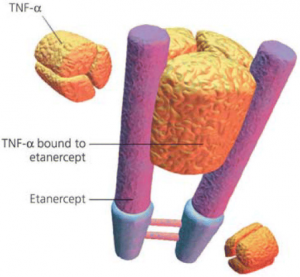Southampton Scientist Verifies Effectiveness of Arthritis Drug in Slowing Alzheimer’s Progression
Written by |

 A drug prescribed for the treatment of arthritis is able to slow the progression of Alzheimer’s, according a study performed by researchers at the University of Southampton in the United Kingdom. Etanercept was administrated to patients with mild to moderate disease, and within a six-month period, the scientists verified that the disease did not get worse.
A drug prescribed for the treatment of arthritis is able to slow the progression of Alzheimer’s, according a study performed by researchers at the University of Southampton in the United Kingdom. Etanercept was administrated to patients with mild to moderate disease, and within a six-month period, the scientists verified that the disease did not get worse.
The results of the study, led by Professor Clive Holmes, considered the memory function, efficiency of day-to-day activities, and behavior, and showed that the patients treated with the arthritis drug did not see their Alzheimer’s disease evolve, compared to the ones treated with placebo, who did get worse. Both groups, totaling 41 patients, enrolled in a small randomized control study and were administrated ether the drug or a placebo for six months.
“Our results are better than we expected,” said Professor Clive Holmes, who presented the results at the Alzheimer’s Association International Conference, in Denmark, between July 12th and 17th. “We have shown that using Etanercept in patients who have Alzheimer’s disease would be safe and has positive outcomes after six months. However this is a small study and should now be tested in a larger clinical trial.”
 Etarnercept blocks the effects of the TNF-alpha protein, which releases blood cells responding to inflammations in the body. The research team started by analyzing it and concluded that Alzheimer’s patients with high levels of active TNF-alpha in the blood had severe symptoms of the disease, compared to ones with lower levels. And since Etanercept reduces the active levels of TNF-alpha, they have decided to test it further.
Etarnercept blocks the effects of the TNF-alpha protein, which releases blood cells responding to inflammations in the body. The research team started by analyzing it and concluded that Alzheimer’s patients with high levels of active TNF-alpha in the blood had severe symptoms of the disease, compared to ones with lower levels. And since Etanercept reduces the active levels of TNF-alpha, they have decided to test it further.
“A large number of anti-inflammatory approaches have been tried in patients with established Alzheimer’s, but with little evidence of efficacy. There are very few studies that have come out with everything moving in the right direction. We have shown that a targeted approach against TNF-alpha offers protection against the development of the disease,” explained Holmes. “Our study was small and lasted for six months so it needs to be developed further, however our projections suggest that the benefits would continue. This now needs to be tested.”
The director of research at the Alzheimer’s Research UK, the UK’s leading dementia research charity, believes that after many years of research into the role of the immune system in Alzheimer’s led by the team in Southampton it’s promising to see a compound targeting the process and showing encouraging early results in people. “While we still await the full report of the findings, Etanercept, a drug already recommended for use in arthritis, appeared to be well tolerated by the Alzheimer’s patients enrolled into the trial,” Dr. Eric Karran said.
“This is a good example of research implicating a mechanism in the disease– in this case systemic inflammation– narrowing down a potential target and using a compound against that target to test a hypothesis. However, we know that clinical trials have a high failure rate and so we need to see Etanercept tested further in larger and longer trials in Alzheimer’s disease,” he added.





